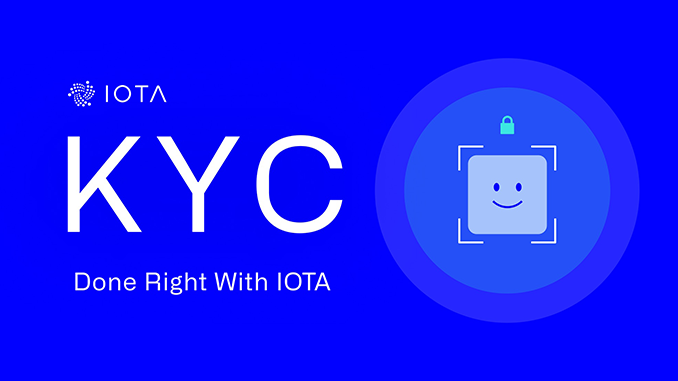
The IOTA Foundation has been working on the topic of digital identities for years. Now, together with four partners, a new approach is being taken to implement identity verification (KYC) in Web3 in compliance with the law.
In the search for promising use cases, IOTA is once again turning its attention to the topic of digital identities. Head of the foundation Dominik Schiener is promoting the “KYC Done Right With IOTA” initiative via X. In a related blog post, IDnow, walt.id, SPYCE.5 and the Bloom Wallet are presented as partners for the project. With walt.id, the foundation had already launched a solution called “Login with IOTA” around a year ago, but nothing more was heard of it afterwards.
The challenge is clear: in the EU and elsewhere, the rules for crypto trading are constantly being tightened, with a focus on preventing money laundering and terrorist financing. This is why legislators are implementing measures that, for example, clearly attribute money transfers worth more than 1,000 euros to private individuals or legal entities, even if they originate from self-managed wallets. From this starting position, IOTA and its partners now want to establish a convenient and practicable solution.
The concept: IDnow takes care of the initial identity check online, where name, date of birth, address and other personal details can be recorded. As a KYC, you will be familiar with such processes from the initial registration on crypto exchanges. walt.id then generates a unique token in IOTA format from this verified information. The Bloom Wallet is the third step and stores this identity token. Like SPYCE.5, Bloom Wallet is a project founded by former employees of the IOTA Foundation.
According to the project description, SPYCE.5 focuses on efficiently designing the KYC infrastructure on the IOTA side project Shimmer (SMR). As you can see, at the current stage of development, the ID solution is designed for the IOTA ecosystem. Even in an accompanying explanatory video, the purposes for KYC and digital identity are limited to DeFi under Shimmer and vaguely Web3.
Conclusion: IOTA ID – old wine in new barrels?
In the late summer of 2021, IOTA had already raved about a successful pilot project on digital identities together with the Dutch de Volksbank. IOTA also wanted to be involved in issuing and validating test certificates during the coronavirus pandemic. Schiener, the head of the foundation, is already jubilant that the new KYC solution will make it easier for investors to enter into financial transactions in the IOTA ecosystem. But the other truth is that there is tough competition in the field of digital identities, where IT giants such as Microsoft and Ethereum (ETH) are already active. It is hard to imagine that IOTA and its little-known cooperation partners will suddenly be able to set a new standard here.

Leave a Reply